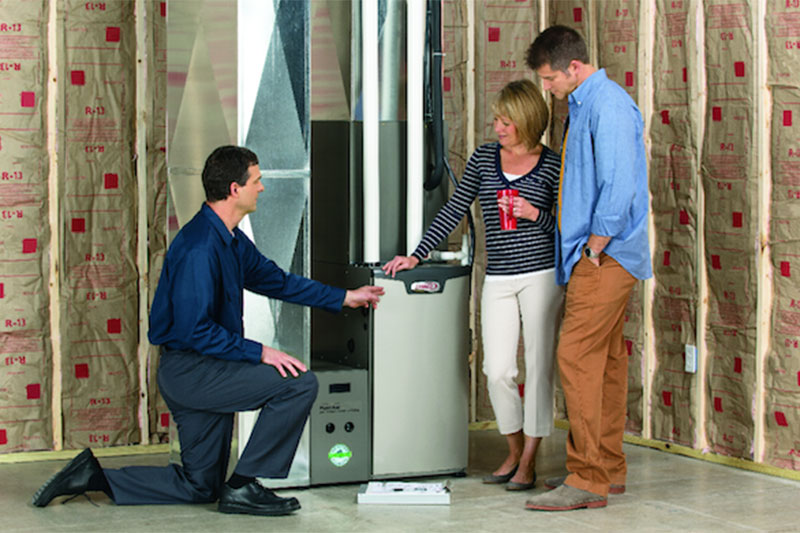
Natural gas furnaces need enough space and airflow to run properly.
Your furnace can overheat if it doesn’t have enough space. It also makes it difficult for our professionals to perform furnace repair.
Regular furnace maintenance is important to keep your unit working well. A regularly serviced furnace may work more efficiently, which could decrease your utility costs.
Related: How Does Furnace Maintenance Impact the Energy Efficiency of Your Home?
Maintenance often helps us notice issues before they start. This could help lower future repair bills and possibly prolong the life of your unit.
So how much area should your system really have?
How Much Space Does My Furnace Need?
If you’re finishing your basement or closing off your furnace room, you should consult manufacturer specifications and Justin laws for clearance rules.
As a general recommendation, your system should be 30 inches away from furnace room walls on all sides. This allows our service technicians to easily repair it.
You also need to ensure the space has ample airflow and ventilation, especially if you have an outdated furnace with a metal flue.
Related: Furnace Service or Furnace Replacement: What to Consider
This type of furnace pulls combustion air from the surrounding space. If there’s not enough air, unsafe gas fumes and poisonous carbon monoxide could leak into your home.
If your furnace is placed in a tiny room with a gas water heater, you may need to add more openings. This could include a fully louvered door or vents in the walls.
You don’t need to assess airflow and ventilation as much if you have a modern, high-efficiency furnace with PVC piping. Your furnace uses one pipe as an exhaust vent and the other to add air.
Keep Flammable Items Separate from Your Furnace
Although furnace rooms function as laundry and storage space, you should keep yours free of items that could be fire hazards.
This includes:
- Clotheslines
- Cleaning or laundry products
- Gasoline, paint or paint thinner
- Rags and papers
- Wood scraps and sawdust
- Used filters
If you have a cat, place your litter box elsewhere. Cat urine contains ammonia, which could corrode your furnace’s heat exchanger. Plus, the furnace could move the smelly odors around your home.
You should also routinely clean around your furnace to block dust from building up.
Related: Is it Time for Furnace Service or Replacement?
Request Expert Furnace Service
Whether you have to have furnace replacement or regular maintenance in Justin, Pepper AC & Heat can expertly meet your needs. Our highly trained technicians can fix any heating equipment model or brand.
Call us at 940-202-1184 or use our online scheduler to set up an appointment today.


